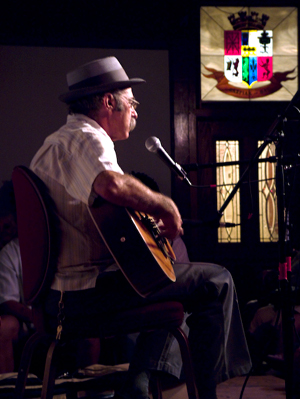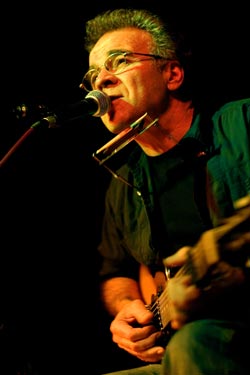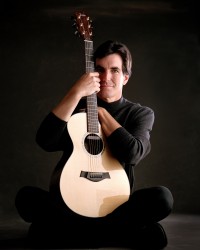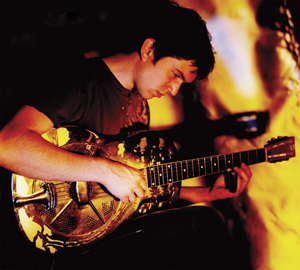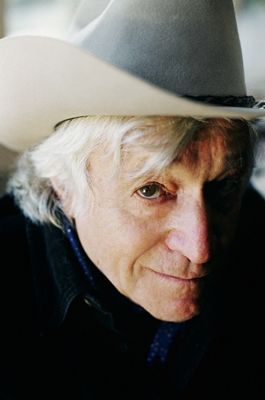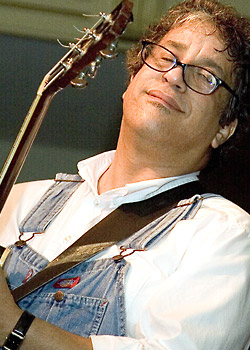 $15 Tickets are ON SALE NOW
$15 Tickets are ON SALE NOW
at Nature’s Corner, The Martin Hotel, and Global Coffee
The look on Chris’ face in this photo tells the story. This is Chris clearly in his grove, the almost trance like state that he enters when he simply lets the sound carry him along. We often talk about the magic that often happens at the Martin, and Chris can really bring it.
Chris’ Bio:
Chris Cain’s jazz-tinged, blues soaked guitar and deep, warm vocals have the maturity and authenticity of bluesmen many years his senior. His expressive style is the result of a lifetime of study and the relentless pursuit of music mastery. His passion and intensity are a blend of his mother’s Greek ancestry and his father’s soulful black heritage.
Cain was raised on stories of his father’s childhood upbringing on Memphis’ Historic Beale Street and attended his first B.B. King concert at the tender age of three. Blues music played continuously on the home stereo and family outings were often trips to concerts. Cain recalls, “I remember when I was a kid, my Dad would be mowing the lawn with the stereo blasting Muddy Waters. When I look back, that was pretty cool! There was always music playing at our house, Ray Charles, B.B. King, Freddie King, Albert King, all the greats.”
At the age of eight, Cain taught himself to play guitar and began playing professionally before he was eighteen. Chris studied music at San Jose City College, and was soon teaching jazz improvisation on campus. Over the next twenty years, Cain would also master piano, bass guitar, clarinet, alto and tenor saxophone. The combination of his blues upbringing and his jazz studies melded to form the searing guitar style that sets Chris Cain apart and has moved him to the top ranks of the blues music scene.
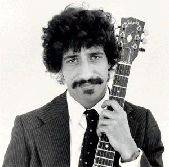 Cain’s debut recording, Late Night City Blues (Blue Rock’it Records-1987) garnered four W.C. Handy Blues Award nominations, including “Guitarist of the Year”. Dan Forte of Guitar Player wrote, “An impressive debut album by a top notch guitarist.”
Cain’s debut recording, Late Night City Blues (Blue Rock’it Records-1987) garnered four W.C. Handy Blues Award nominations, including “Guitarist of the Year”. Dan Forte of Guitar Player wrote, “An impressive debut album by a top notch guitarist.”
Cain’s next two releases; “Cuttin Loose” (Blind Pig Records-1990) and “Can’t Buy a Break” (Blind Pig Records-1992) collected a long list of awards and accolades. In August of 1995 Blind Pig released “Somewhere Along the Way” his 4th compilation of his unique brand of original music sophisticated blues, funk, jazz and gospel.
In 2003 Patrick Ford produced Chris’s latest CD, “Hall Of Shame” (Blue Rock’it Records-2003). “…this is now the sixth Chris Cain solo release I have produced, not to mention his work with me on projects like the Ford Blues Bands’ “In Memory Of Michael Bloomfield” CD, and I continue to be in awe of his incredible talent. As a guitarist/singer, Chris has been praised by mentors like Albert King and peers like Robben Ford.”
Larry Nager (syndicated Scripts-Howard music critic) writes, “Nowadays most young blues players are Strat-wielding Stevie Ray Vaughan-a-bes. Not Chris Cain. With a voice that recalls B.B. King and a thick toned Gibson guitar sound reminiscent of Albert King, Cain is forging a unique style. With his own highly personalized songwriting, “Hall Of Shame” is a giant step in the development of one of the most compelling young bluesmen on today’s scene.”
Through his guitar mastery and remarkable songwriting ability, Chris Cain has established himself as a musical force to be reckoned with. And as San Jose Mercury News music reviewer John Orr writes, “more than anyone else, anywhere, Chris Cain represents the future of the blues.”
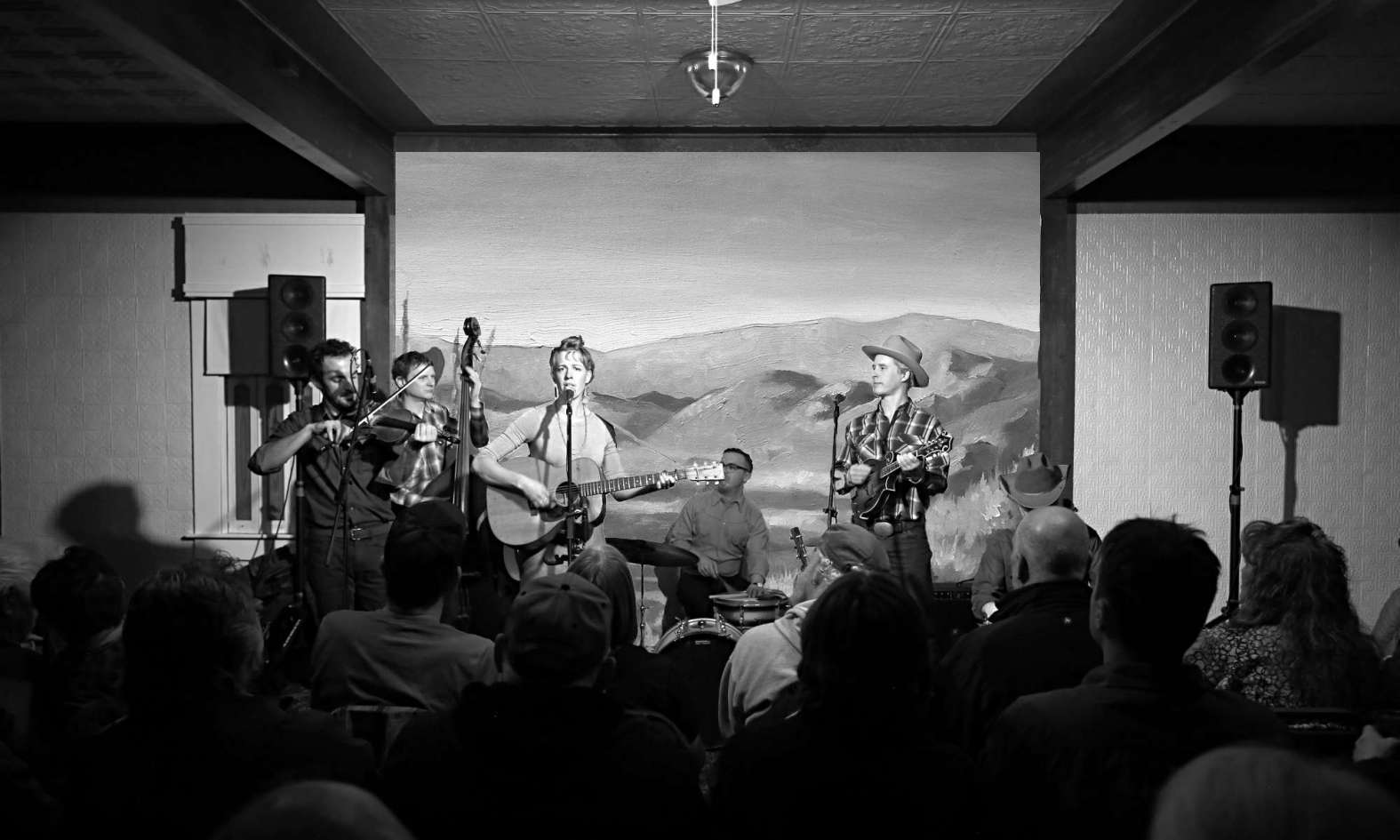

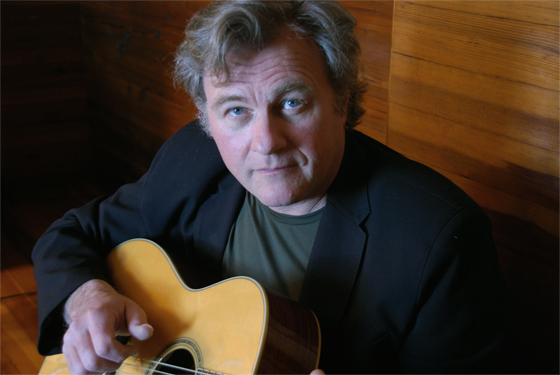
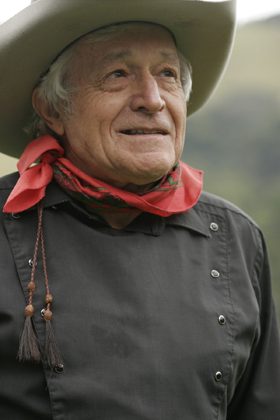
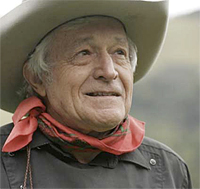
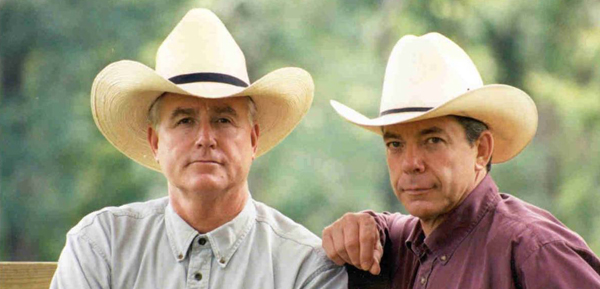
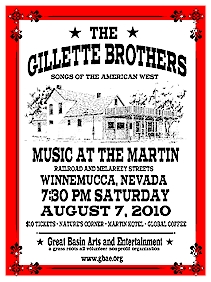 They have played at major events and venues around the country including: The 2008 Smithsonian Folklife Festival in Washington DC, The National Cowboy Poetry Gathering in Elko, NV, The Monterey Cowboy Poetry & Music Festival in Monterey, CA, The Santa Clarita Cowboy Poetry & Music Festival in Santa Clarita, CA, The Willow Tree Festival in Gordon, NE, The Arizona Cowboy Poets Gathering in Prescott, AZ; The Cherry Blossom Festival in Macon, GA; The National Arboretum in Washington, DC, The Buffalo Bill Historical Center in Cody, WY, and The National Cowboy & Western Heritage Museum in Oklahoma City, OK, The Museum of South Texas in Edinburgh Texas.
They have played at major events and venues around the country including: The 2008 Smithsonian Folklife Festival in Washington DC, The National Cowboy Poetry Gathering in Elko, NV, The Monterey Cowboy Poetry & Music Festival in Monterey, CA, The Santa Clarita Cowboy Poetry & Music Festival in Santa Clarita, CA, The Willow Tree Festival in Gordon, NE, The Arizona Cowboy Poets Gathering in Prescott, AZ; The Cherry Blossom Festival in Macon, GA; The National Arboretum in Washington, DC, The Buffalo Bill Historical Center in Cody, WY, and The National Cowboy & Western Heritage Museum in Oklahoma City, OK, The Museum of South Texas in Edinburgh Texas.